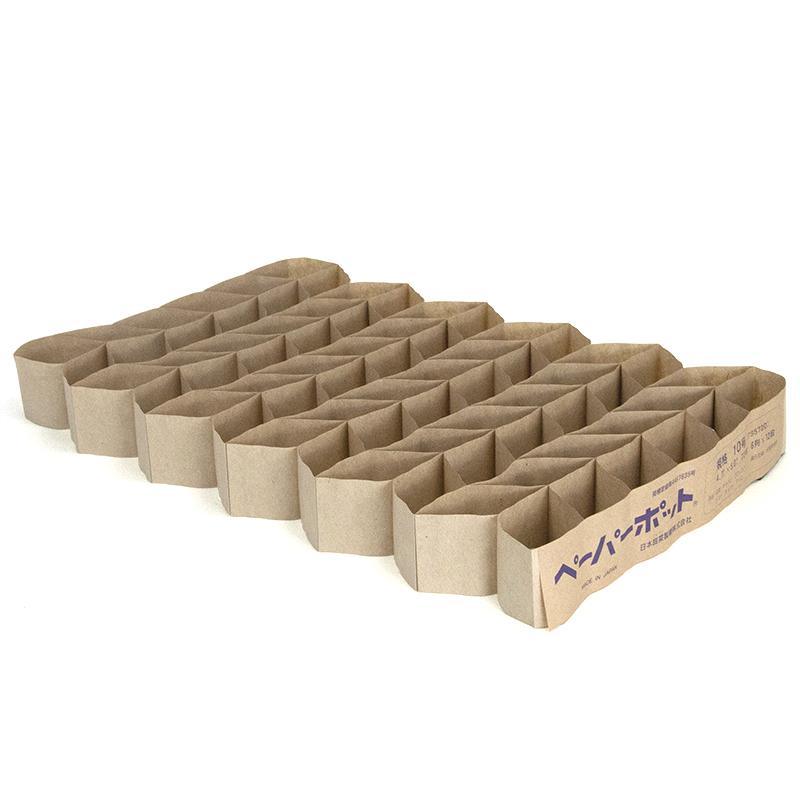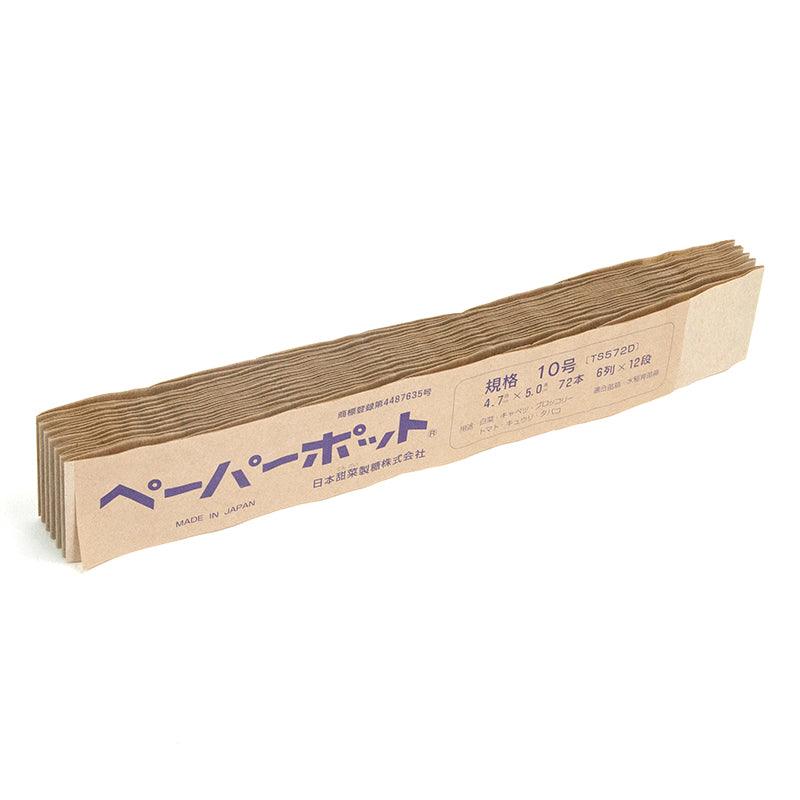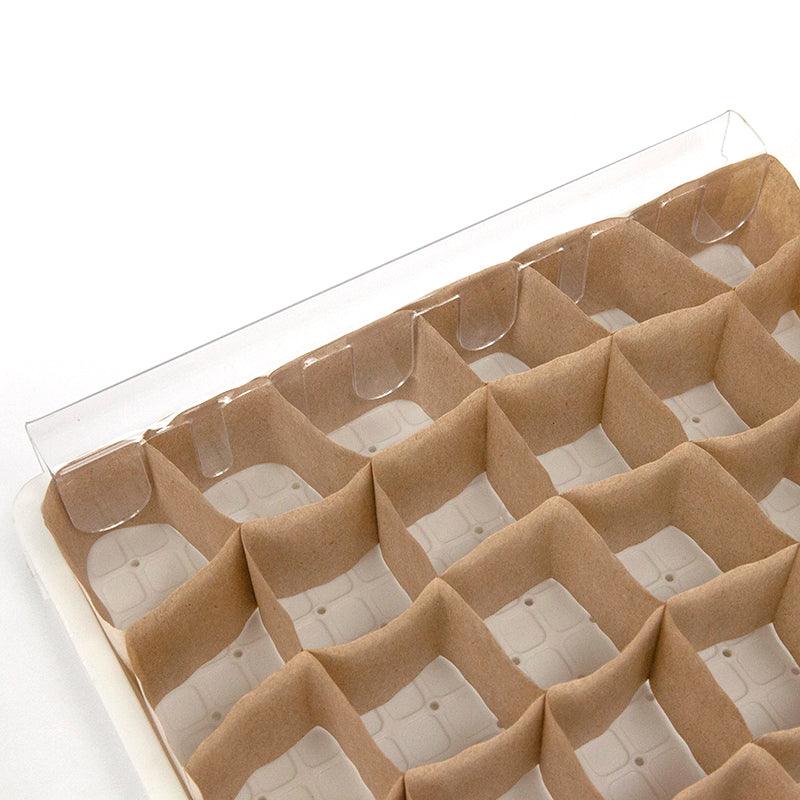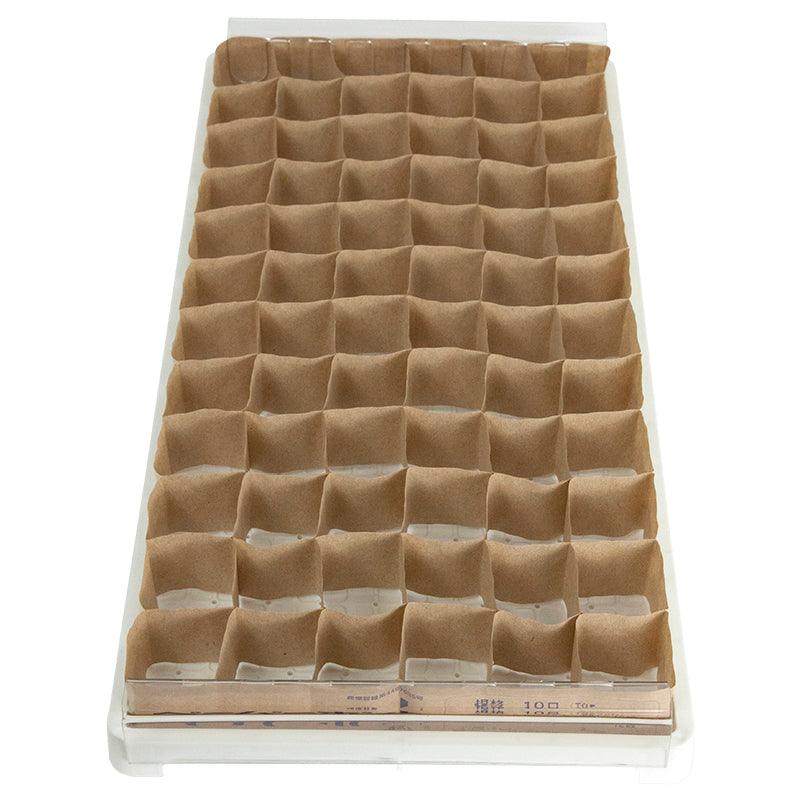Item Number: GP062
Paper Pots 1.9" Round x 2"H (72/Strip)
Biodegradable Peat Pots
Paper pots for seedlings offer a convenient, eco-friendly alternative to traditional containers or soil blocks—without the time, hassle, or expense of making blocks yourself. These paper pots come connected in a honeycomb strip, making them easy to separate when you're ready to transplant. Simply fill with soil, plant your seeds, and once your seedlings are ready, place the pots directly into the ground where they will naturally decompose—no waste, no root disturbance.
These pots will not fit in a standard 1020 tray! The pots are held open to fill using simple plastic clips. Clips and trays sold separately.
- 72 cell (each pot 1.9” sq x 2” deep)
- Pots are allowed by NOP but are not certified organic (yet)
- Unlike other brands, they are not treated with fungicide
- Use with a 12” x 24” tray (sold separately)
- Biodegradable paper pots
- Reuse the tray and clips (sold separately)
- Non-chain paper pots are easy to separate when ready for planting
Paper pots for seedlings are a sustainable, easy-to-use alternative to plastic containers. Made from biodegradable materials, paper pots naturally decompose in the soil, making them perfect for eco-conscious gardeners. Simply fill with soil, plant your seeds, and when your seedlings are ready, transplant the entire pot into your garden—no root disturbance, no waste.
These pre-formed paper pots save time, require no cleanup, and support healthy root growth through natural air exchange. Use with a quality seed starting mix for optimal germination. Lightweight and efficient, paper pots for seedlings are ideal for gardeners of all experience levels seeking a practical, eco-friendly seed-starting solution.
Check Your Zone Compatibility:
Compatible with your zone.
Growing Zone for

Our Guarantee To You
Since 1976, we've served our customers at every stage of growing. Please contact us at any time. We are happy to support and assist you.
Shipping Information
Shipping Information
Shipping Weight: 0.15 lb
Dimensions: 6.25"L x 2.0"W x 0.5"H
Features
Features
- Biodegradable
Characteristics
Characteristics
Use Instructions
Use Instructions
Useful Information
Useful Information
Guarantee
Guarantee
Share




Hooked on the paper pots and not going back to the plastic. Easy to stock up and use later, handy size for storage for when I need them. Holds up well in the trays, starts are happy and easy to pull apart the cells for transplanting. No more stacks and stacks of plastic.




